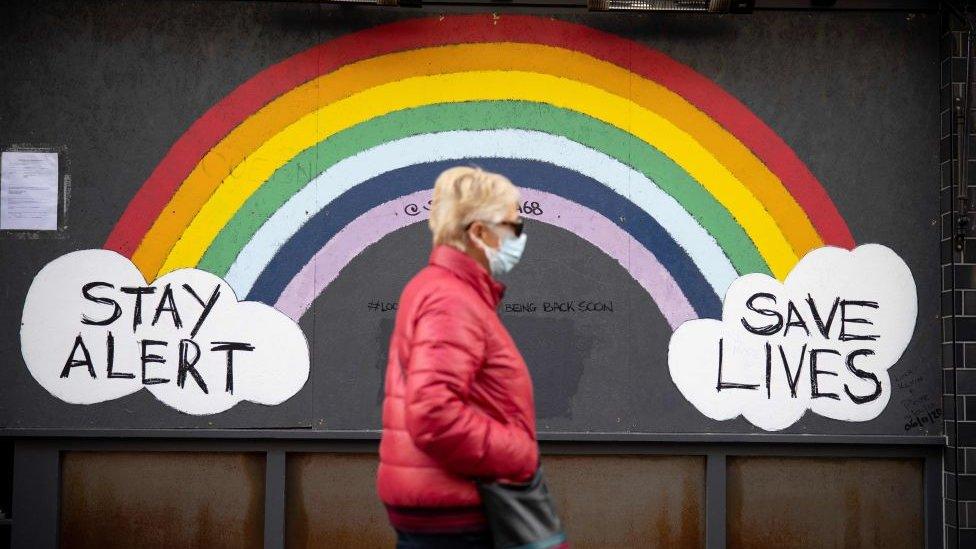First Covid inquiry public session in Birmingham hears from victims
- Published
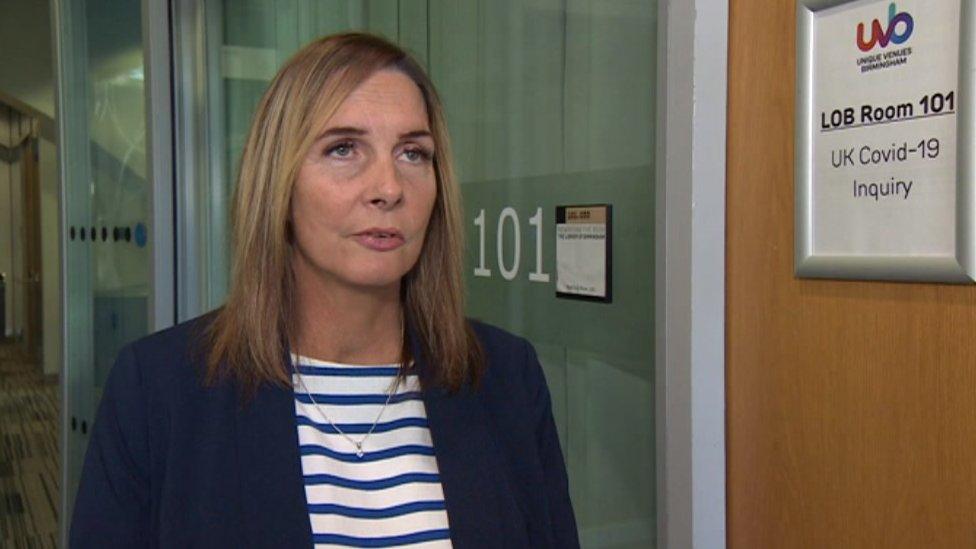
Jane Roche helped to campaign for the inquiry to take place
A woman who lost her father and sister to coronavirus has spoken of her grief and anger at the first public session of the Covid-19 inquiry.
Jane Roche was one of 12 people who gave evidence at the Every Life Matters event held at the Library of Birmingham on Wednesday.
It is chaired by Baroness Heather Hallett and will be touring the UK to speak to people impacted by the virus.
The inquiry is expected to last four years.
Three-and-a-half years after the pandemic began, for Ms Roche, who fought and campaigned for the inquiry, the memories are still as raw.
Her father Vincent died after catching Covid in a care home. Then, within five days, her 54-year-old sister Jocelyn also died.
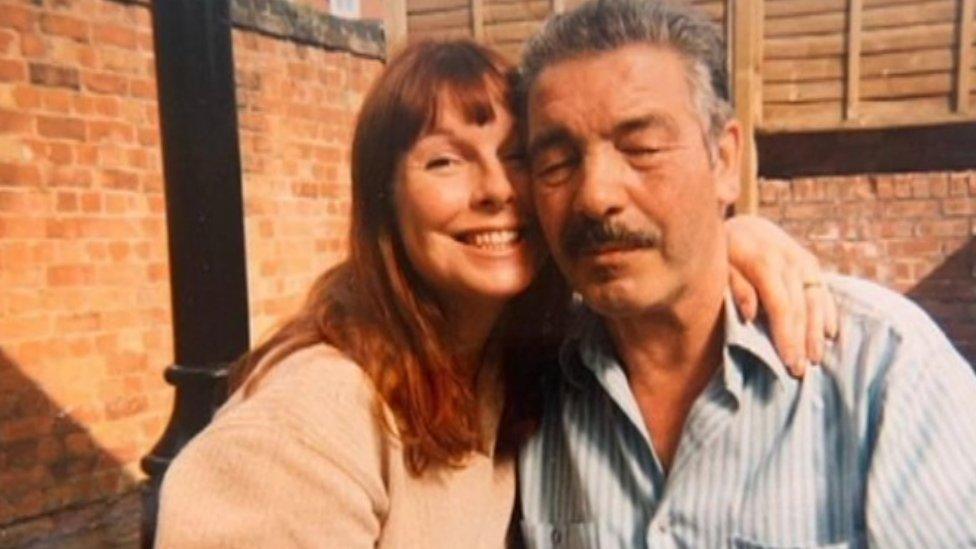
Ms Roche says her father's final moments will haunt her forever
"I found my dad in hospital, they said I could go up and see him, that he wasn't very well," she said.
"When I got in the room it was a sight that will haunt me forever because he was lying on the bed alone, aged 86, gasping like a dog that had run 100 miles, with no oxygen, no-one there to comfort him, no-one there to look after him.
"How he had his last hours was absolutely disgusting."
The devastation that came with the virus continues to "fill her with dread every day".
The campaigner added: "I feel guilty because I wasn't there to save them.
"In normal circumstances, any family would have been with their loved ones and made their end of life journey as beautiful and peaceful as possible."
Over the next few weeks, Baroness Hallett will be hearing from Prime Ministers Rishi Sunak and Boris Johnson.
Evidence gathered during the nationwide tour will help shape recommendations about how future pandemics are handled.
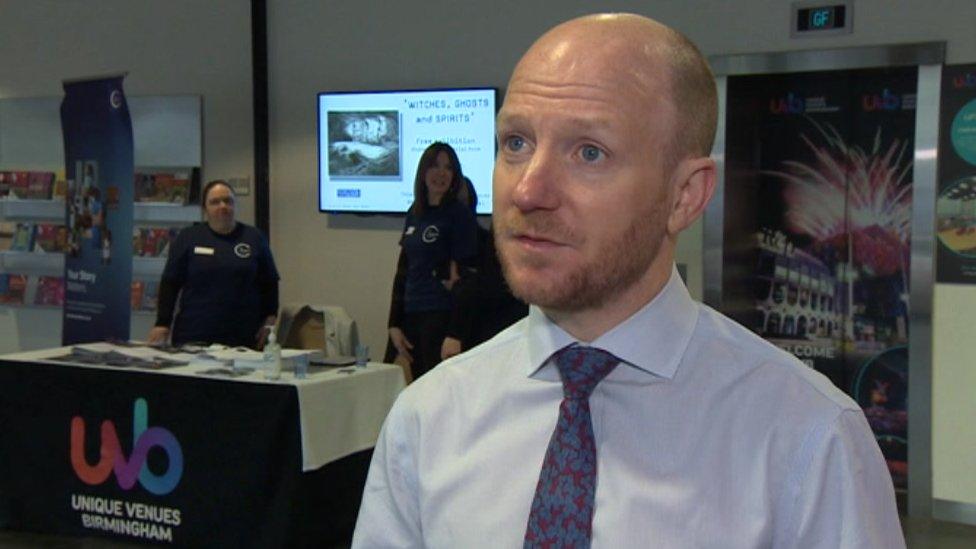
Inquiry secretary Ben Connah says hearing people's tales will help shape future pandemic measures
Inquiry secretary Ben Connah said: "The pandemic affected us all, so hearing about the real life experiences of people up and down the country in all four nations of the UK is really important to learning the lessons and making sure the UK is better prepared next time there is a pandemic."
Some of the first health workers who died during the pandemic lived in the West Midlands region, including Dr Amged El Hawrani, in Burton, Staffordshire; nurse Leilani Dayrit, in Rugby, Warwickshire; and Elsie Sazuse, in Birmingham.
Nicole Gauchi left Wolverhampton on her own for the first time in two-and-a-half years to give evidence.
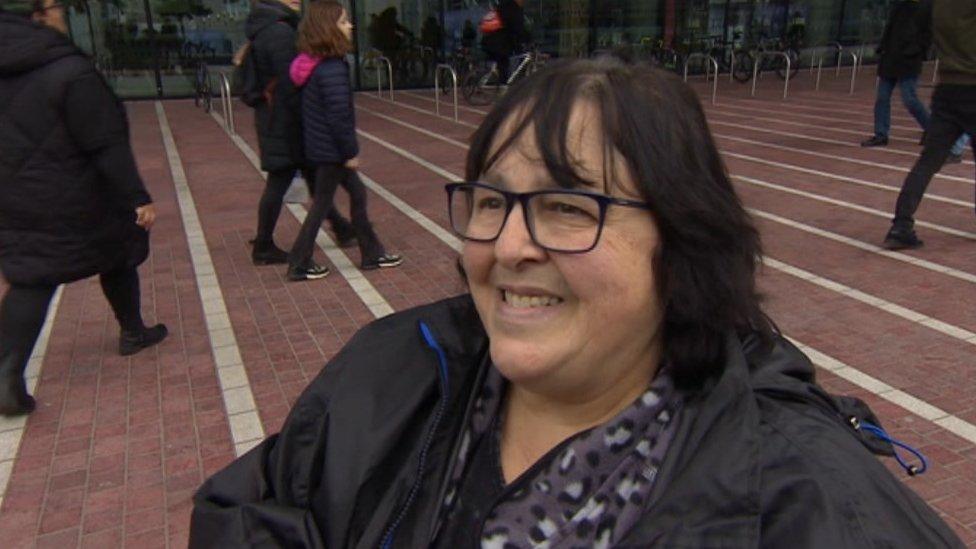
Nicole Gauchi was left suffering from long Covid after catching the virus during the pandemic
Before suffering from long Covid she said she could swim 30 lengths and run races. Now she struggles with mobility.
She said: "I didn't feel like my voice was heard, I'm not completely satisfied.
"What brought me here and what I thought I was going to do is very different to what I actually did do."

Follow BBC West Midlands on Facebook, external, X, external and Instagram, external. Send your story ideas to: newsonline.westmidlands@bbc.co.uk, external
- Published13 June 2023
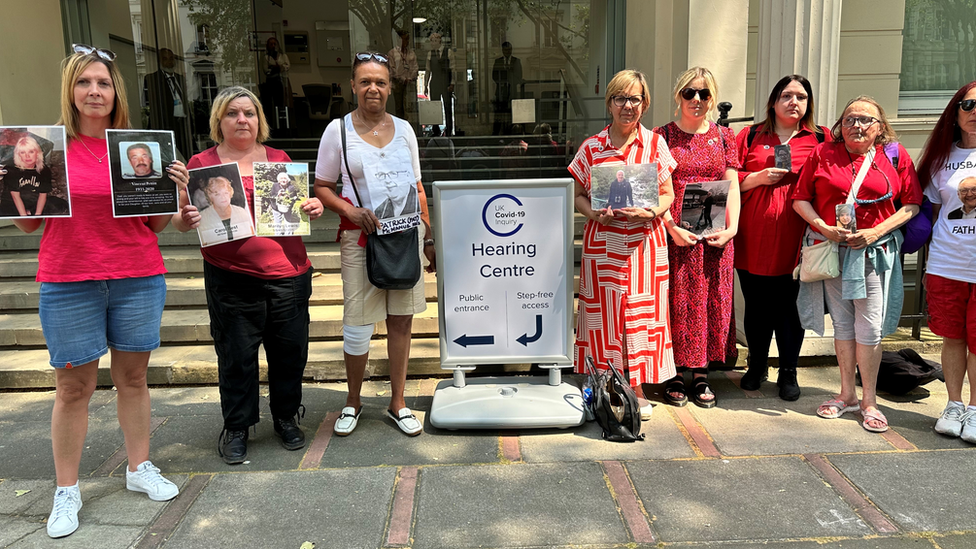
- Published29 March 2023
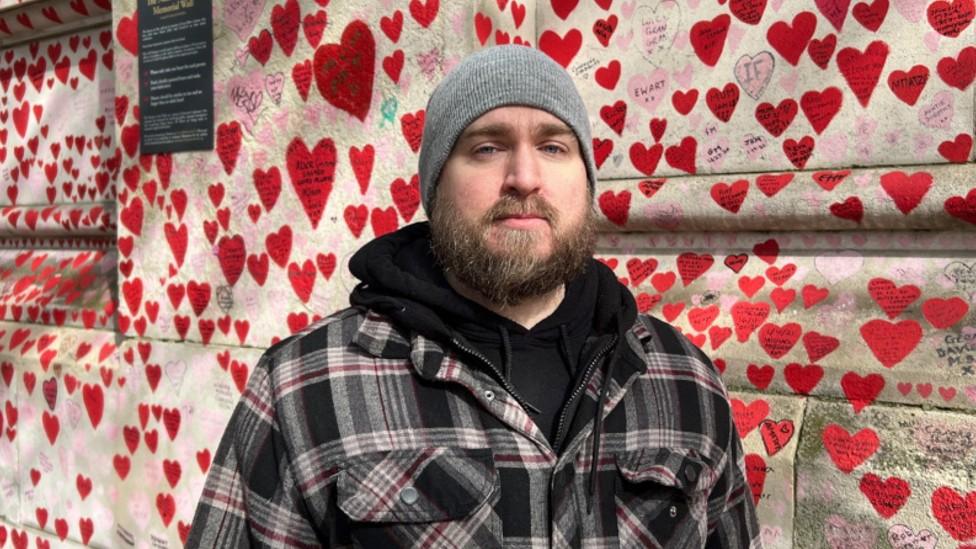
- Published8 December 2021
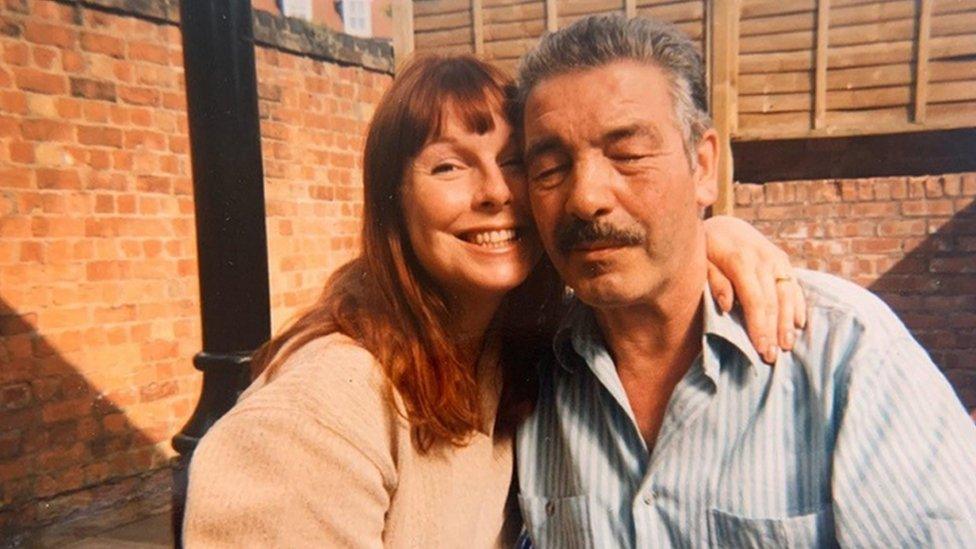
- Published1 February 2022

- Published2 June 2023

